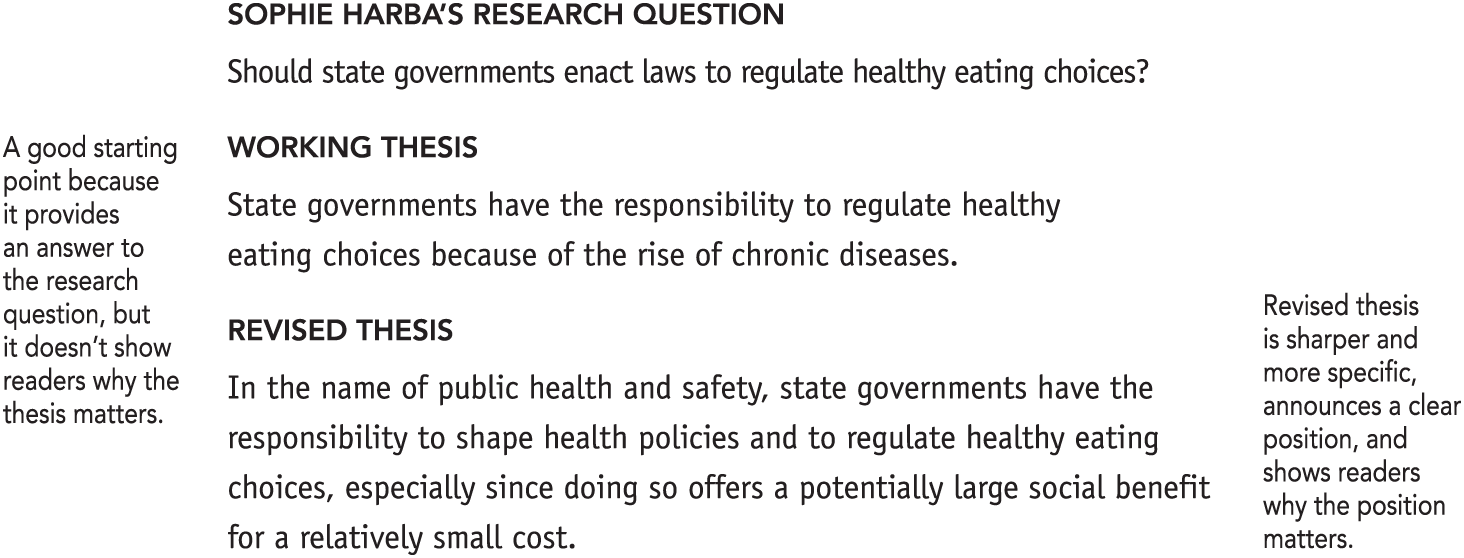47a Form a working thesis statement.A thesis statement expresses your informed answer to your research question—an answer about which people might disagree. Start by developing a working thesis statement to help you narrow your ideas and clarify your purpose. As your ideas develop, you’ll revise your working thesis to make it more specific and focused.
Here, for example, is one student writer’s research question and working thesis.
Text reads as follows,
Sophie Harba’s Research Question
Should state governments enact laws to regulate healthy eating choices?
Working thesis
State governments have the responsibility to regulate healthy eating choices because of the rise of chronic diseases. [A corresponding margin note reads, ‘Working thesis is a good starting point because it provides an answer to the research question, but it is too narrow for the scope of the research project and doesn’t show readers why the thesis matters.’]
Revised thesis
In the name of public health and safety, state governments have the responsibility to shape health policies and to regulate healthy eating choices, especially since doing so offers a potentially large social benefit for a relatively small cost. [A corresponding margin note reads, ‘Revised thesis is sharper and more specific, announces a clear position on a debatable topic that is the right scope for the project, and shows readers why the position matters.’]
The thesis usually appears at the end of the introductory paragraph. To read Harba’s thesis in the context of her entire paper, see 51 b.
The thesis usually appears at the end of the introductory paragraph. To read Harba’s thesis in the context of her entire paper, see 51b .
Keep the following guidelines in mind to develop an effective thesis statement for your research project.
A thesis should be your answer to a question and should take a position that needs to be argued and supported. It should not be a statement of fact or a description. Make sure that your position is debatable by anticipating opposing viewpoints and counterpositions.
A thesis should match the scope of the research project. If your thesis is too broad, explore a subtopic of your original topic. If your thesis is too narrow, ask a research question that has more than one simple answer.
A thesis should be focused. Avoid vague words such as interesting or good. Use concrete language and make sure your thesis lets readers know your position.
A thesis should stand up to the “So what?” test (see Putting your thesis to the “So what?” test ). Ask yourself why readers should be interested in your essay and care about your thesis.
